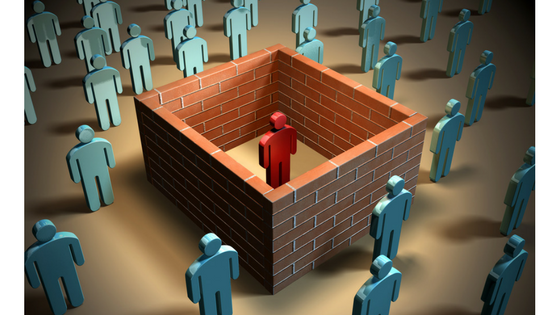It’s a Disorder, Not a Decision
“You can be unhappy if you want to, Teresa, but it’s a miserable way to live.”
That was my mother, who didn’t understand that my moodiness was not a decision: It was a result of my disorder. I was a teen when she first named my down periods as depressions, although she had no clue we were dealing with a medical issue.
Even as I’ve aged and been diagnosed with bipolar disorder, I’ve continued to be bombarded by the “happiness is a choice” message. In periods of stability or mania, I can completely appreciate the message: I don’t feel like being miserable, so I won’t be. It’s a denial that I’m dealing with a genuine disorder and that my down periods are not decisions.
I think, “I’m going to set my misery aside and focus on what makes me feel good and happy.”
When my mood swings in the other direction, however, that same message brings out bitterness. “If I could choose happiness right now, I would. Who wants to be depressed?”
It’s been the same with my financial challenges: If it weren’t for my husband’s diligence and careful planning, I wouldn’t have a penny saved right now. Or, I might have saved some money just to see it disappear in the height of manic episode. Budgets and bipolar disorder are at odds with each other.
Dave Ramsey says we can’t “out-earn our stupidity,” but I came close – and it was the most idyllic, most secure time of my life. Except I was out-earning my disorder, not my stupidity.
I’m not the only one with experiences like this. I hear it in my support groups, both online and in person: “They think I’m lazy because I sleep so much from my depression.” “They tell me to get over it.” “They say I’m making it up/exaggerating/lying.”
Already struggling with depression, anxiety, or whatever form our personal disorder takes, these statements further diminish and isolate us. They set the automatic tapes in our heads, already playing on repeat, into hyper-mode.
“You suck; you’re so lazy.”
“Just take a damn shower, why are you choosing to be so gross and dirty?”
“I’m such a drama queen; I can’t even handle a little teasing.”
This is one reason why getting a diagnosis often comes as a massive relief. Finally, we have a name for our experiences. Finally, we have words to describe our struggles. Finally, we aren’t alone, and there’s a path forward. Finally, we have hope again.
Finally, we know that our experiences are not decisions, but a medical issue that needs medical treatment.
For our families and friends, too, the same hope emerges. “Good, now she won’t be depressed all the time,” they think or “Thank God, I won’t have to keep nagging him.”
Getting the diagnosis seems like the beginning of the end. We’ve hit the climax on the story of our life, and now we get the help, we pop the pill, and everything gets better. Sunshine and roses make up our new world, and the loose ends of our lives get tied up in a pretty little bow.
Hah. Right. If only.
Let’s say we do everything right. We get our prescriptions dialed in, and we know they work. We faithfully attend our therapy sessions, journal consistently, have a mindfulness practice, eat right, exercise, and pray regularly. We are doing all the things and doing them right.
It doesn’t mean that the disorder is gone. It doesn’t mean that the symptoms won’t come back.
I am pretty good about my self-care. I’m fanatical about taking my mood stabilizer; I keep my appointments – I do what I’m supposed to.
I still get depressed. I still have manic (well, hypomanic) episodes. I still have to manage my symptoms and my triggers, every day.
That will never change.
But I understand the reality that I’m dealing with a disorder, not a decision. The people in my support groups understand this and what it means for them, too.
That doesn’t mean that our spouses, our families, or our friends understand it.
They see us doing better. They see us managing our symptoms and succeeding. They celebrate the end of the problems, not realizing that the cycle can swing in the other direction at any time.
So when it happens, they are confused. “You were doing so well; what happened?” our loved ones ask. For those of us who fall into a depression, they get frustrated by all our negative self-talk, just like my mother did. To them, we’ve conquered the disorder, so why are we making this decision?
Maybe they care enough to send supportive Bible verses or motivational images to remind us that, “Happiness is a choice.”
I get it. Oh, do I get it. When we care for someone, we don’t want to see them in pain. We want to step in, to do something, to help them feel better, make better choices – whatever we think will help. It’s frustrating to be on the outside, see how simple the solution, and yet witness the person we care about struggle and suffer in a way that seems unnecessary.
“It’s not that hard,” we may think to ourselves or say (unhelpfully) to our loved one.
There’s the rub. Whatever the “it” is, it’s not that hard when we are mentally healthy. We may be busy and struggle to make the time or balance everything in our lives, but we are capable of doing what is necessary to care for ourselves and lead generally successful, resilient lives.
Yet, when we live with something like depression, anxiety, or any other mental illness, what is easy for most people is not easy for us. Getting out of bed takes an extra level of effort. Going to a party means overcoming fears that most people never experience. Paying rent, opening mail, doing laundry – the most mundane tasks and experiences that most adults master early in their independence are significant challenges. These are not decisions; they are the direct result of our disorder.
Worse, because many of our disorders vary in their intensity, what’s easy for me today may not be easy for me tomorrow. I went four months without opening the mail; it was too much for me to handle. Then, one day, I went through it all. The mail I couldn’t face for months and months was opened and organized in the space of an afternoon, with catchup plans laid out and budgeted.
When my husband met me, some time after my mail issue, I was budgeting pretty well. I had a good handle on all my finances. I felt good; I felt safe; I felt like a competent adult. I took pride in my self-discipline and congratulated myself on finally fixing the issue.
Then I went hypomanic, and all my self-discipline disintegrated. As it turned out, I wasn’t fixed: I was stable.
It’s still hard for my loved ones to grasp this idea, although it gets easier for them as I get more and more successful at managing my symptoms and have more extended and predictable stable moods.
Over time, though, I’m confident they’ll understand as I do: It’s a disorder, not a decision.
How have you helped your loved ones appreciate that you deal with a medical issue? I’d love to hear your advice in the Comments section.
Looking for daily inspiration and community? Join our warm and supportive Facebook group!









